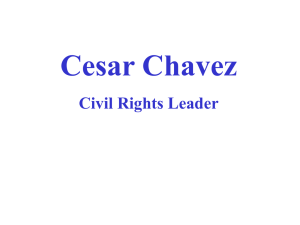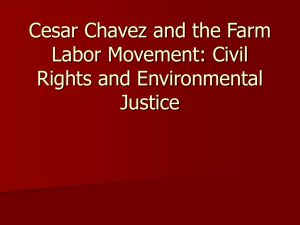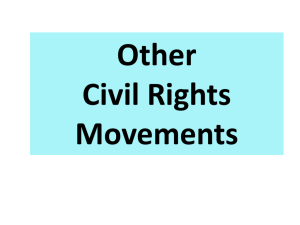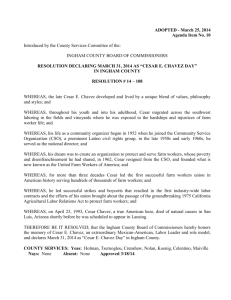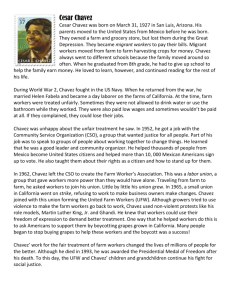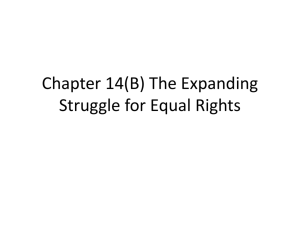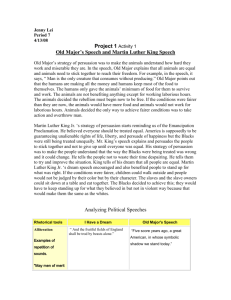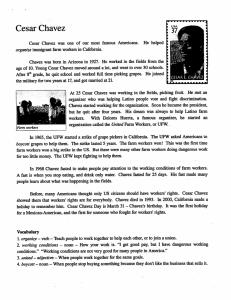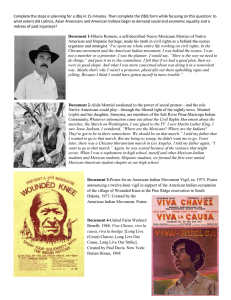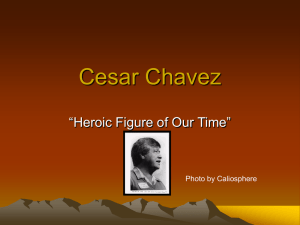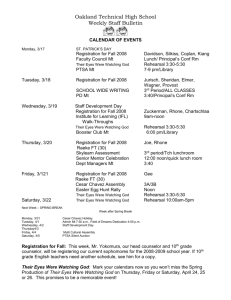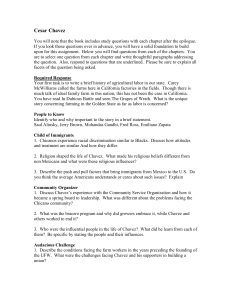File
advertisement
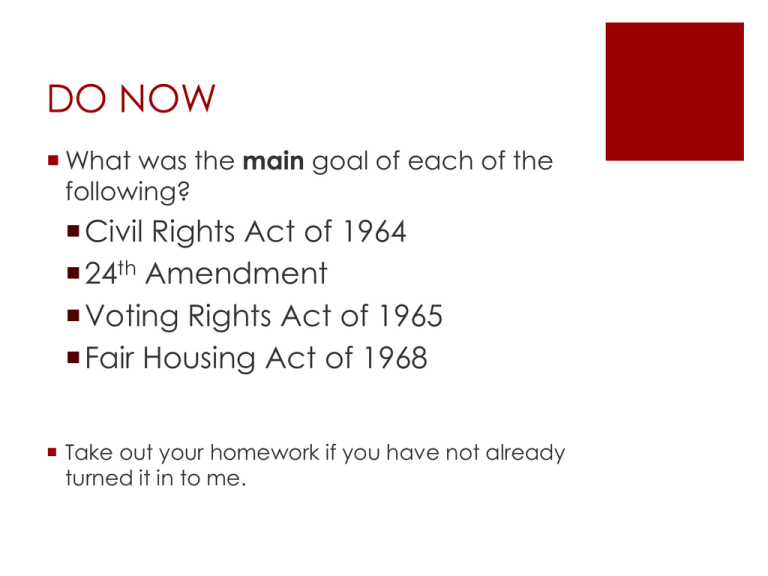
DO NOW What was the main goal of each of the following? Civil Rights Act of 1964 24th Amendment Voting Rights Act of 1965 Fair Housing Act of 1968 Take out your homework if you have not already turned it in to me. Learning Goals EQ Did the Civil Rights Movement extend beyond African-Americans? LT Identify nonviolent tactics of Cesar Chavez and the UFW. Explain how Mexican-American farmers fought for Civil Rights. POU I can identify and explain the tactics used in the United Farm Workers Movement. Cesar Chavez & the United Farm Workers Movement 1965-1975 Cesar Chavez 1927-1993 Born in Yuma, Arizona in 1927, Cesar Chavez spent his childhood as a migrant worker. In the 1940s, he moved to San Jose, California where he married Helen Favila. Chavez joined the Community Service Organization and learned grass roots organizing methods. He became general director of the national CSO, but in 1962 resigned and moved to Delano, where he organized the National Farm Workers Association. Their most effective tactic was the boycott. The NFWA urged supporters not to buy products from companies that did not sign a contract with the union. Civil Rights 1964- The bracero program finally ends, in part due to pressure form the NFWA and its supporters. (The bracero program had allowed Mexican immigrants to come to the US as temporary workers.) That same year, President Lyndon Johnson signs the Civil Rights Act of 1964. The new law prohibits racial discrimination and establishes affirmative action programs to remove discrimination in advertising, recruitment, hiring, job classification, promotion, wages and condition of employment. Timeline of Events 1965- On September 8, Filipino farm workers from the Agricultural Workers Organizing Committee strike the Di Giorgio Corporation, a large grape grower in the San Joaquin Valley of California, demanding recognition of their organization and higher wages. The following week, Chavez and Dolores Huerta lead the NFWA in a vote to join the Agricultural Workers organizing a strike. 1966- From March 17 to April 11, Cesar Chavez and the National Farm Workers Association march from Delano to the California capital in Sacramento to publicize their strike. They arrive on Easter Sunday. NFWAUFW On August 22, the NFWA and the Agricultural Workers Organizing Committee unite to form the United Farm Workers Organizing Committee (UFW). Shortly thereafter, the Di Giorgio Corporation grants the UFW membership a contract. In 1967,the United Farm Workers targeted the Giumarra Vineyards Corporation (the largest producer of table grapes in the US), boycotting all table grapes. After five years, they finally obtained a contract with the grape growers. The Union turned its attention to the lettuce growers of the Salinas Valley. Hunger Strike 1968 - On February 15, Chavez begins a twenty-five day hunger strike at Forty Acres, near Delano, California. Shortly thereafter, he appears in court to respond to an injunction aimed at prohibiting picketing by the UFW. Chavez is too weak from his hunger strike to testify, and the incident gains national attention and sympathy. On March 10, he breaks his fast at a Catholic mass in Delano’s public park with 4,000 supporters at his side, including Senator Robert Kennedy. Outcomes 1970- The UFW wins a major victory when 40 growers in California’s Coachella Valley ask to negotiate contracts with the union. Negotiations result in better pay, a union hiring hall, creation of formal grievance procedures, restrictions on the use of pesticides, rehiring of strikers, and employer contributions to a health fund.
